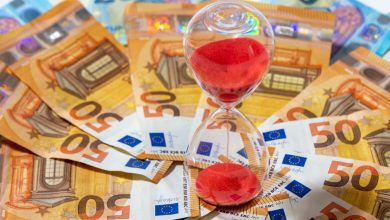Europe’s New Protectionists
Op-ed published in The Wall Street Journal Europe on May 20, 2011.
Tuesday marked the entry into force of the European Union’s tariff on imports of Chinese coated fine paper, a type of glossy paper used for magazines and brochures. The duty is the EU’s first ever aimed at punishing the granting of industrial subsidies, which the Chinese government uses through various channels to benefit its domestic producers.
China’s protectionist practices are due reason for concern, not just for Europe. But Europe’s foray into antisubsidy tariffs serves as a grim parable for how barriers to free trade, far from making markets “fairer,” serve only to beget further barriers and higher prices for consumers.
Antisubsidy duties, also known as countervailing duties, have been touted as innovative and somehow different from conventional antidumping duties. Make no mistake: Both are cut from the same cloth. That an antisubsidy tariff is a retaliatory move against another country’s protectionism does not make the tariff any less protectionist on its own merits. China’s government may hand out cheap loans, tax incentives and other unfair goodies to Chinese producers, but the proper response from Europe does not involve distorting price signals even further with sweeteners of its own.
The antisubsidy and the antidumping tariffs do not look so different, moreover, when comparing their economic effects. Both, in the name of protecting the interests of a few paper producers, will punish European consumers and importers of paper, as well as those manufacturers who have moved some of their production offshore.
The back-story here is depressingly familiar. Producers, facing dwindling market share, seek to limit competition via legal barriers to entry. Europe’s paper industry today is indeed in a weak state. Chinese paper manufacturers increased their market share within the European Union to 4% from 1% between 2006-09. European firms’ production volume and market share have deteriorated during over the past few years.
In defense of the new tariff, the European Commission emphasizes that “producers were not in the position to increase their sales prices to a level that would have profitability rates necessary for long term viability.” The tariff, in the commission’s estimation, will make it possible for a declining industry to increase its prices and restore profitability in the short term.
But at what cost? China has become the EU’s second most important trading partner behind the U.S., and the EU’s biggest source of imports by far. The EU’s open market has been a large contributor to China’s export-led growth. Because of higher input costs, EU producers have long been at a disadvantage compared to Asian firms in the production of raw materials and low-skilled manufacturing products. That has been the basic motive behind the EU’s antidumping duties on Chinese goods ranging from chemicals, bicycles and textiles.
There is something self-righteous about the EU’s condemnation of China for subsidizing its own industries. The EU itself has a long history of bestowing subsidies upon industries that it deems strategic, so it is probably not in the best position to pass judgment on countries that may well have taken cues from Europe’s past actions. But such is the nature of barriers to trade; once walls come up on one side, it’s never long before the other side takes to the same bad habits.
A complaint about the paper tariff will almost certainly be brought before the World Trade Organization. A similar case involving American paper producers has been in consultation since 2007, and the ruling there will bear substantially on how a complaint about the European duty would be treated. It is not farfetched to believe that China may gets its way here; some kinds of subsidies are difficult to classify as illegal under WTO rules. That would be victory of a sort, if it forces countervailing duties to be retracted in the U.S. and Europe. But it would still leave the tangle of domestic subsidies, both in China and in the West, to be undone before trade can be truly free and fair.
Cécile Philippe is director of the Institut économique Molinari.





